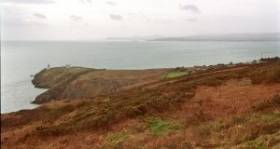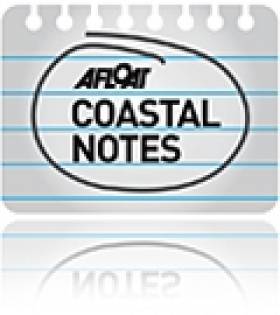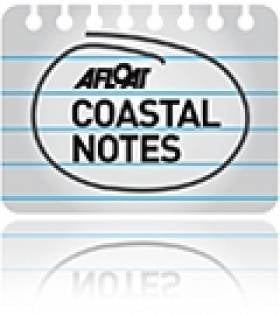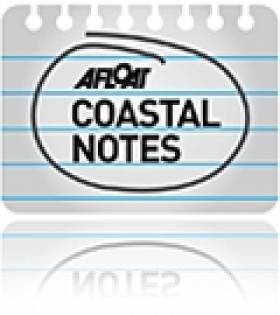Displaying items by tag: Environmental Protection Agency
Heat Extremes in Ireland Will Become More Frequent and Severe Without Action - EPA Assessment
Heat extremes in Ireland will become more frequent and severe, and technological advancements will only deliver short-term benefits if steps towards “transformative change” are not taken, a new report published by the Environmental Protection Agency (EPA) warns.
Ireland’s Climate Change Assessment (ICCA) report is the culmination of over two years of work that examines, over four volumes, how Ireland’s climate is changing.
Described as a “state of the art assessment”, it also examines how the island can be decarbonised, how climate change can be prepared for, and examines the benefits in transitioning to a low carbon society.
Researchers from Trinity College Dublin’s (TCD) Schools of Natural Sciences and Engineering worked on two volumes of the report and a summary document for policymakers.
The study notes that in line with global trends, 16 of the 20 warmest years in Ireland have occurred since 1990.
It says that having peaked in 2001, Ireland’s greenhouse gas emissions have reduced in all sectors except agriculture.
However, Ireland currently emits more greenhouse gases per person than the EU average.
It says that more action is needed to meet Ireland's legally binding emissions targets, including large-scale and immediate emissions reductions across the energy system, which is currently heavily dependent (86%) on fossil fuels.
It says that “immediate and sustained transformative mitigation and adaptation actions” are “likely to yield substantial benefits for health, wellbeing and biodiversity in Ireland while reducing vulnerability to the adverse impacts of climate change”.
The full report is available here
The health of about 5,500 people was put at risk by e.coli in private drinking water schemes in Ireland last year due to failure of disinfection systems, the Environmental Protection Agency (EPA) says.
Meeting E.coli standards is a basic requirement in the provision of safe drinking water, the EPA says, but 14 private group schemes were found to have E. coli contamination in 2022.
This indicates that the water supply “has not been properly disinfected”, it says.
Public supplies have not been free of contamination over the past year, with offshore islands experiencing boil water notices as Afloat has reported.
Earlier this month, a boil water notice on the Clare Island public water supply was lifted by Uisce Eireann.
The notice, which was issued in June, was put in place to protect the health of customers on the island following the detection of cryptosporidium in the water supply. Works are "progressing" to upgrade the island’s water treatment plant, Uisce Eireann says.
In a report released today (Friday Oct 20) EPA says that private drinking water quality is not as good as public water quality.
It says the total number of small private supplies remains unknown as not all have registered with their local authority.
The EPA monitored 84 per cent of registered small private supplies last year, compared with 75 percent in 2021.
It says that a government review of the rural water sector identified several key issues in the provision of rural water that need to be addressed to protect public health.
Drinking water is provided to approximately 200,000 people across rural communities in Ireland, by over 380 group water schemes.
In addition, many rural commercial and public activities such as schools, creches, nursing homes, pubs and restaurants have their own drinking water wells, it says.
There are 1,700 small private supplies registered with local authorities, but the total number of small private supplies remains unknown, as many suppliers haven’t registered their supply.
The Drinking Water Quality in Private Group Schemes and Small Private Supplies 2022 report is published by the EPA.
Dredging in Dublin Port Begins With Material Dumped in Dublin Bay
#dredging- Dredging works in Dublin Port that began yesterday are to continue to March 2018 which will involve moving loaded material out to sea and dumped in Dublin Bay, writes Jehan Ashmore.
The works are part of the Capital Dredging Programme 2017 that arise from the Alexandra Basin Redevelopment (ABR) Project which is phase one of the Port's Masterplan 2012-2040 (see first review). The dredging will permit much larger and deeper draft cargoships and cruiseships to enter the port.
Last month concerns were raised by campaigners about the safety of the Dublin Bay porpoise as Dublin Port also undertook routine maintenace dredging that involved dumping material on a site off the Baily Lighthouse, Howth Peninsula. At the time the Journal.ie wrote that the Protect Dublin Bay group said that the area should be protected from waste.
Afloat noted the Belgium flagged Minerva, a trailer suction dredger began carrying out operations yesterday in Dublin Bay, a day later than envisaged.
The 2016 built green hulled dredger operated by New Waves Solutions, a subsidiary of the Dredging, Environmental & Marine Engineering DEME, was working consistently off the Dublin Bay bouy, located in the centre of the bay.
Dublin Port Company was granted a license Foreshore Consent by the Department of Housing, Planning Community & Local Government and a Dumping at Sea Permit from the Environmental Protection Agency (EPA).. The dumping of dredged material for this particular programme is described in an area as Outer Dublin Bay which is subject to conditions.
Under the terms of the EPA's Dumping at Sea Under permit, a maximum of 8,760,000 tonnes of dredged material may be loaded and dumped at sea up until and including 31 March 2021.
For much much information on the dredging works including documents on the Dumping at Sea permit (S0024-01) and A Notice to Mariners click here.
In addition if you have any concerns Dublin Port Company have issued contact details with respect to the Capital Dredging Programme. They can be contacted during normal business hours by asking for Charlie Murphy or Eamon McElroy by calling 01 887 6000 ; or by post to Dublin Port Centre, Alexandra Road, Dublin 1; or email: [email protected]
Alternatively concerns can be raised by contacting the Office of Environmental Enforcement Agency, EPA see website and for contact information from this link.
Divers Decide to Challenge Dumping in Dublin Bay
#DiversOnDumping – Lorna Siggins of The Irish Times writes that divers’ groups have decided to seek a judicial review over the licensing by the Environmental Protection Agency (EPA) of dredge spoil dumping in Dublin Bay.
Legal representatives for the Irish Underwater Council have informed the EPA of the action due to concerns as previously reported on Afloat.ie about a special area of conservation (SPA) extending from Rockabill to Dalkey Island.
The council is the national umbrella organisation for sport divers, and its action is being supported by Oceandivers, Flagship Scuba and Lambay Diving in an alliance known as Divers Against Dumping.
Dublin Port is engaged in maintenance dredging of shipping lanes under an EPA permit issued in 2011 – two years before the Rockabill to Dalkey Island special conservation area was designated by the Minister for Environment.
To read more from the newspaper click here.
#CoastalNotes - More than 97% of Ireland's bathing areas meet the EU's minimum standards for water quality in new figures announced today 2 May - though 21 waters have been stripped of the top ranking.
The latest figures for 2012 were released today in a new report from the Environmental Protection Agency (EPA), whose director general Laura Burke said that the "quality of Ireland's bathing waters remained very high despite remarkably wet summer weather in 2012".
As reported last year on Afloat.ie, water runoff from heavy summer flooding led to elevated levels of E.coli in many coastal areas, causing the temporary closure of beaches in Cork, Galway and North Dublin.
It's this rise in levels of harmful bacteria above mandatory EU safety levels that resulted in the poor performance of some perennial bathing favourites in the 2012 figures, as The Irish Times reports.
The number of beaches meeting the EU's stricter 'good' bathing quality standards fell from 112 in 2011 to 91 waters last year.
EPA senior scientific officer Peter Webster told The Irish Times that the fall "is disappointing but I'm surprised it was not more".
And despite the drop, three local authorities - Dun Laoghaire-Rathdown, Sligo and Leitrim - managed to achieved 'good' status for all of their designated bathing areas.
The worst performing beaches were Clifden in Galway, Fountainstown in Cork, Ballyheigue in Kerry and Rush in North Dublin, all of which were ranked as 'poor' for water quality.
Remedial water treatment works are planned for Clifden, while it's reported that no cause was found for a single "uncharacteristically high" sample taken from Ballyheigue.
Minister Grants Foreshore License for Corrib Pipeline
New Minister for the Environment Phil Hogan has signed off on a key foreshore licence to Shell Ireland, paving the way for the completion of the controversial Corrib gas project.
The Irish Times reports that the licence, subject to conditions, consents for the construction of the final 8km section of pipeline linking the Corrib gas field to Shell's onshore terminal at Ballinaboy. Co Mayo.
The scheme already has approval from An Bord Pleanála, and consents approved by former acting energy minister Pat Carey. But An Taisce has sought a judicial review of the planning decision, due before the High Court on Tuesday.
Still required by the developer before any work can begin are a revised emissions licence from the Environmental Protection Agency and a safety permit from the Commission for Energy Regulation under the Petroleum (Exploration and Extraction) Safety Act 2010.
The Irish Times has more on the story HERE.
- Natural Gas
- pipeline
- Corrib
- Corrib Gas field
- Corrib gas pipeline
- Shell Ireland
- Co Mayo
- Ballinaboy
- Minister for the Environment
- Phil Hogan
- Minister for Energy
- Pat Carey
- An Taisce
- An Bord Pleanála
- High Court
- judicial review
- Environmental Protection Agency
- Commission for Energy Regulation
- Petroleum (Exploration and Extraction) Safety Act 2010
Corrib Pipeline Go-Ahead Rests With Energy Minister
Energy Minister Eamon Ryan will issue a decision "in the coming weeks" on Shell Ireland's plans to complete the Corrib gas pipeline, The Irish Times reports.
The news follows yesterday's ruling by An Bord Pleanála which approved revised plans final section of the controversial pipeline.
Shell also requires licencing from Minsiter for the Environment John Gormley and the Environmental Protection Agency (EPA) for the completion of the pipeline under the conservation area of Sruwaddacon esturary to Shell's Ballinaboy gas terminal.
It would be a further two years before the pipeline is fully operational.
An Bord Pleanála's Inspector Martin Nolan commented that the "clarity and transparency" of Shell's revised application gave "confidence that the safety of the public is fully protected".
However planning was only approved with 58 conditions related to the construction and management of the 8.3km pipeline - including extra security at the landfall valve at Glengad, which has raised the ire of local residents at last year's oral hearings.
The Irish Times has more on the story HERE.
































































